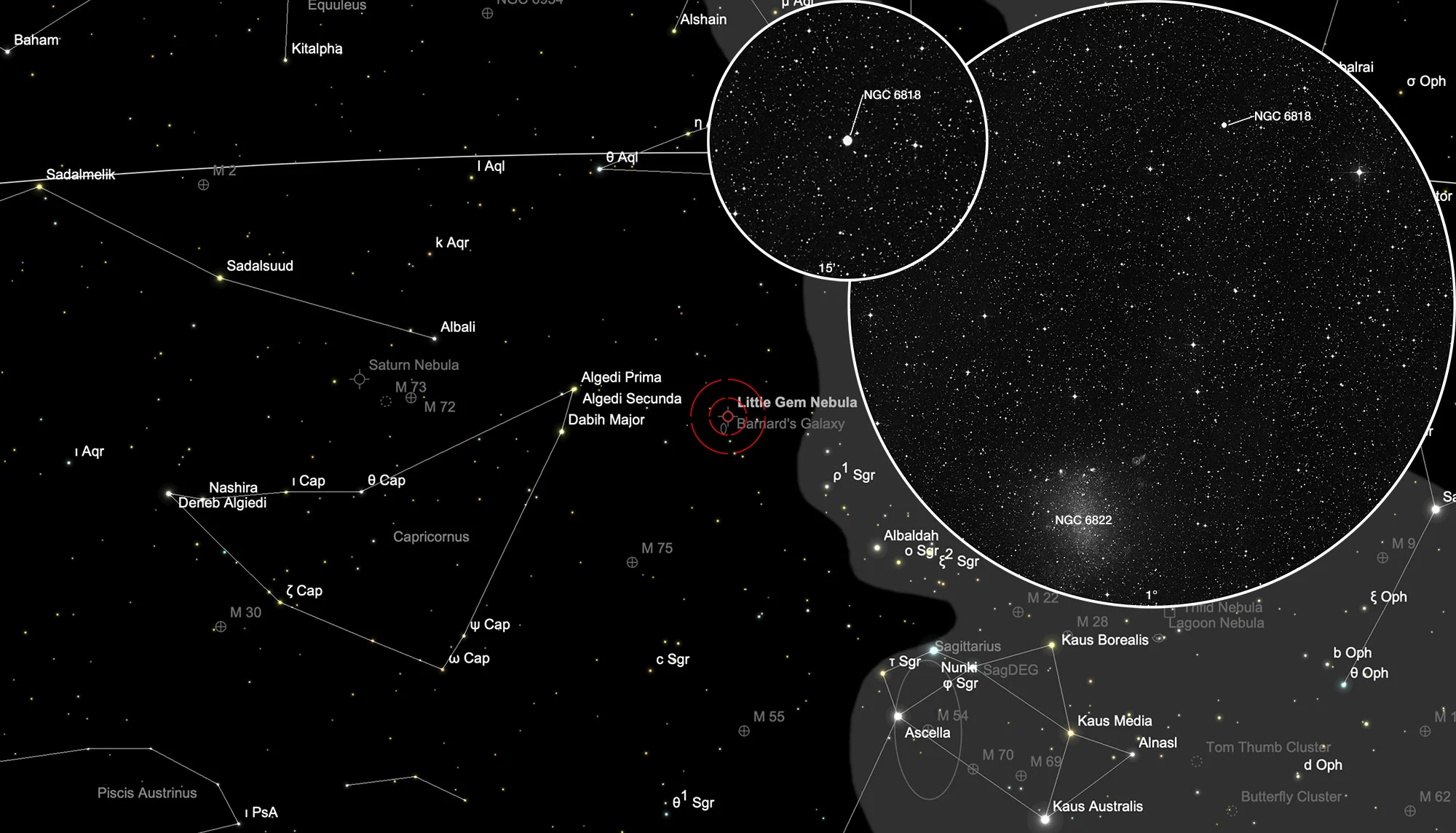Planetary Nebula NGC 6818

History
This planetary nebula was discovered on 8 August 1787 by the German-British astronomer William Herschel using his 18.7 inch reflecting telescope. He cataloged it as IV 51 (class IV = planetary nebula). In his publication of 1789 he wrote: «A considerably brigth, small, beautiful planetary nebula; but considerably hazy on the edges, of a uniform light; 10 or 15" diameter, perfectly round. I shewed it to M. De la Lande.» [464] The nebula was added in 1888 by J. L. E. Dreyer as NGC 6818 to his famous catalogue. [313]
NGC 6818 is sometimes also referred to «Little Gem Nebula», a name which is also used for the planetary nebula NGC 6445.
Physical Properties
NGC 6818 is located at a distance of about 6000 light-years and has a diameter of about 0.5 light-years. A fast wind from the hot central star is creating the elongated shape and in fact has caused a «blowout» at the two ends of the major axis. The planetary nebula has an outer spherical envelope, an inner brighter elongated bubble, and it shows a blowout orifice at one end of the major axis. [535, 536]
| Designations | PN G025.8-17.9: NGC 6818, PK 25-17.1, ARO 12, Sa 2-392, VV 241, VV' 511 |
| Right Ascension (J2000.0) | 19h 43m 58s |
| Declination (J2000.0) | -14° 09' 07" |
| Dimensions | 20." (optical) |
| Distance | 2.2 kpc |
| Radial Velocity | -13.0 ± 3.0 km/s |
| Expansion Velocity | 27.6 (O-III) 31. (N-II) km/s |
| C-Star Designations | AG82 381 |
| C-Star Magnitude | B: 16.90 |
| C-Star Spectral Type | WNb ? |
| Discoverer | HERSCHEL 1787 |
Finder Chart
The planetary nebula NGC 6818 is located about 40 arc minutes from dwarf galaxy NGC 6822 in the constellation Sagittarius, actually closer to Capricornus. On 17 July it is in opposition to the Sun and crosses the meridian at local midnight. It is best observed in the months from March to December.
Visual Observation
762 mm Aperture: The planetary nebula NGC 6818 is distinctly visible as a tiny puff of cotton with a hint of a central hole. At higher magnification using the TeleVue Nagler 7mm (360x), the central darkening becomes more of a triangle or blotchy smudges composed of three slightly darker circular areas. — 30" f/3.3 SlipStream Dobsonian, Hasliberg, 10. 8. 2024, SQM 21.28, Eduard von Bergen
